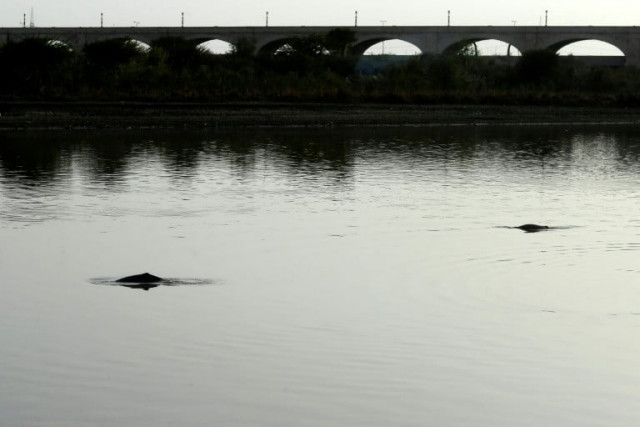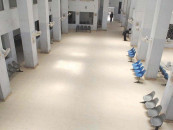Experts call for eco-friendly projects in Indus delta
Say region needs development with social, economic and environmental outcomes

Sustainable management of natural resources has become one of the most pressing issues today, said a senior official of environment protection body, Worldwide Wildlife Fund (WWF).
Decades of mismanagement, underinvestment, and weak implementation of policies, often due to a low appreciation of the diverse values of healthy landscapes, have placed the biodiversity of the Indus delta under increasing strain, said WWF-Pakistan Senior Director Programmes Rab Nawaz.
He was speaking at the private sector workshop titled Towards Bankability and Conservation with Private Sector Engagement in the Indus Delta Ecoregion Landscape (IDEL).
He shared that as globally advocated $3.9 trillion investment is to be mobilised in order to achieve the global SDGs by 2030 out of which a major chunk is required to preserve and restore significant ecosystems ($550-660 billion).
This is a huge investment gap that cannot be met with philanthropic and public funding alone and thus needs private sector engagement as a prime driver for sustainability and climate action agenda.
Read More: Pakistan mandated to host World Environment Day for its leading role
He further highlighted that to mobilise, forge and strengthen private sector partnership for climate action and sustainability, WWF has partnered with the Dutch Fund for Climate and Development(DFCD) through Indus Delta Ecoregion Landscape Initiative which is the first of its kind to serve as a leading example for institutional partnerships and deploy public and private capital in well-designed and impactful climate-friendly projects.
Over 40 companies marked their presence at the event. The salient feature of the event included a briefing on DFCD - WWF opportunities for the private sector, understanding on bankable and nature-based solutions concepts, the integrated landscape approach to sustainable business development, and experience narration from the few private sector companies that are benefiting from the DFCD-WWF partnership.
This included those who have created bankable projects in integrated organic farming, sustainable mushroom cultivation, agri-waste to sustainable by-products and commodities, and aquaculture. WWF-Hong Kong DFCD (Asia) Regional Lead Stuart Beavis said investment in such innovative self-sustaining conservation for-profit models, which are a win-win situation for all stakeholders; the companies, customers, and communities.
While, WWF-Pakistan Sindh and Baluchistan Regional Lead Dr Tahir Rasheed said that WWF Pakistan, in collaboration with the SEDF, has made significant progress in identifying solutions and developing bankable proposals for both climate adaptation and mitigation.



















COMMENTS
Comments are moderated and generally will be posted if they are on-topic and not abusive.
For more information, please see our Comments FAQ